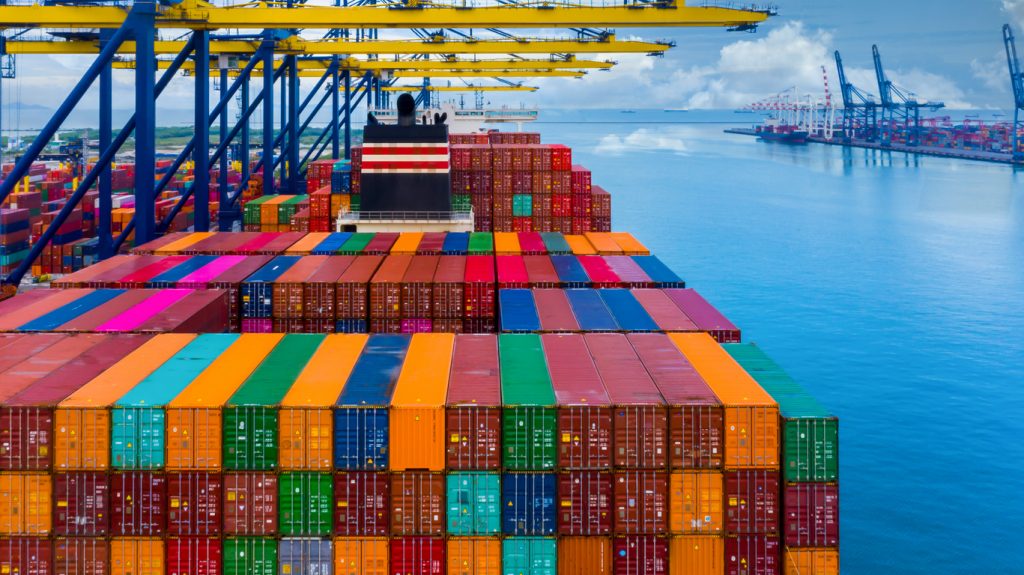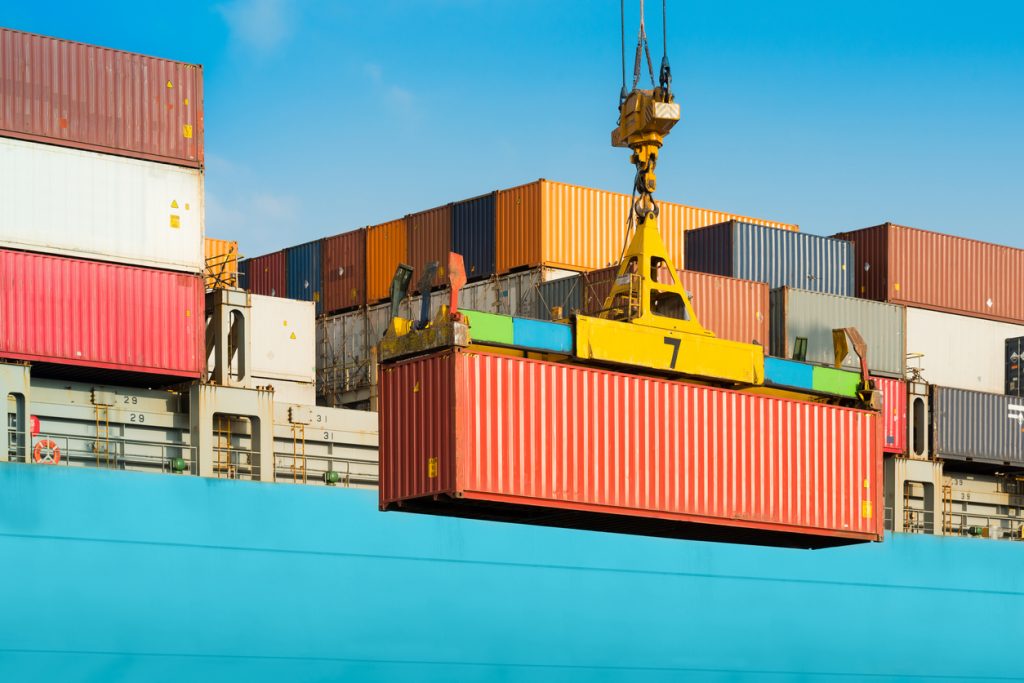Have you ever wondered how a shipping container is made? Or what happens to it after it can no longer be used for transporting cargo? We’ll answer all your questions in today’s blog. We’re looking into the lifecycle of a shipping container, from the manufacturing process, to how they’re used once their job is done.
Our 35 years of experience in the industry here at Flintham Cabins help us provide you with expert knowledge, so whether you’re just here to learn or are interested in purchasing our bespoke shipping containers, we can help you out.

How Is a Shipping Container Made?
Primarily made from steel and aluminium, the process begins by rolling out a wide sheet of the chosen material, then cut it into several pieces. After that, they are sanded, which removes any dust, rust, and other imperfections. The metal is then corrugated to strengthen the container and make it easier for them to be stacked. All parts of the steel container (the roof, floor, and doors) are made separately and then welded together. After welding, the container is painted and primed – to protect it from rust. Waterproofing then takes place, which involves installing rubber around the doors. The final stage is testing to make sure that the container is strong, durable, and waterproof.
Here at Flintham Cabins, we offer entirely bespoke shipping containers, so you can get precisely what you want out of it.
We have an article on our blog that explains in much more detail how a shipping container is made, so please take a look for more information.
What Factors Affect the Longevity of a Shipping Container?
There is no straight answer to the question “how long does a shipping container last” as a long list of factors can affect their lifespan. On average, you should expect to get over 25 years’ worth of use out of them. Let’s take a look at a couple of the factors that affect the longevity of a shipping container.
- Exposure to moisture and the sea air. Saltwater can be corrosive, so even with the protective paint and primer used on steel containers, the sea air can cause rusting after years of exposure.
- Prior damage to your steel container. If you are purchasing a second-hand steel container, you may find that it has not been maintained as well as it should have done. Consider browsing our used shipping containers for sale to guarantee you have a container that has been well looked after.
Interestingly, the size of a shipping container also has an impact on its lifespan. A 40-foot container tends to last longer than a 20-foot container, as they are usually not filled to capacity like the latter.
What Happens to Shipping Containers After You Can No Longer Use Them for Shipping?
If your shipping container becomes too rusty or too expensive to maintain after decades of work, it’s probably time to cease using it. Once this has happened, dismantling begins, and the metal is recycled and used in other ways. Sometimes, shipping containers can be lost at sea, but this doesn’t happen often. Refrigerated containers are built with buoyancy, yet others will drift for around two months before sinking to the ocean or seafloor.

How Else Are Shipping Containers Used Before They Are Recycled?
Used shipping containers are often bought by creatives who intend to use them for a range of projects. Over the years, we have seen steel containers used to open businesses, such as bars, as they provide an exciting setting for a drink and something to get customers talking. Additionally, due to the Coronavirus pandemic, we have noticed a rise in used steel containers being used as office space. Used shipping containers were even home to some Covid-19 testing sites and vaccination centres across the country.
Shipping Containers from Flintham Cabins
We hope that this article has been of interest and you have learnt something new about the lifespan of a shipping container. For more helpful information, industry news, and company updates, head to our blog, where we post regular content.
We have a wide range of shipping containers available here at Flintham Cabins. Whether you’re looking for new container units in London or steel container hire, we have what you need. Please don’t hesitate to get in touch with our team. We have 35 years of experience in the industry which makes us more than equipped to provide you with the proper advice and guidance.


